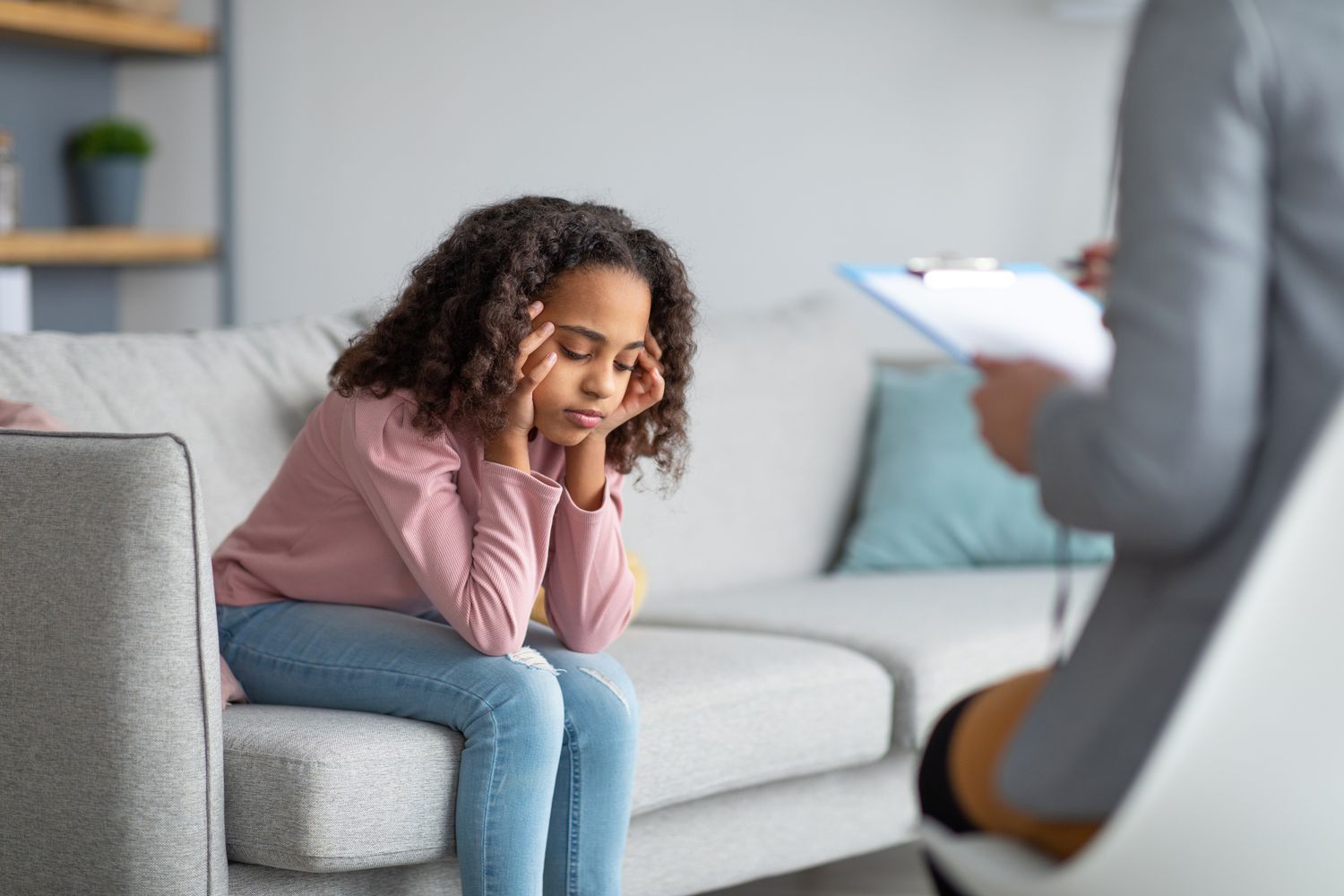Hello!
 Child psychiatry is an underrated category in mental health. The behavioural and emotional growth of a child is significant.
Child psychiatry is an underrated category in mental health. The behavioural and emotional growth of a child is significant.
This post is a short attempt at acknowledging the role of a child psychiatrist and its significance.
You may use the services of a psychiatrist to check the mental health of your child. You may opt for tests & procedures to recognize the behaviour and thought process of your child.
It is imperative to book an online appointment with a specialist to test your child’s mental capacity.
The Science of Child Psychiatry
The children covered in child psychiatry programs include preschool kids as well as the ones before their teens. In many cases, child psychiatry and adolescent psychiatry are covered together to beat the fine line between those age categories. For technical reasons, a child psychiatrist might be open to counselling your child under 18 years.
Does Your Child Need A Psychiatrist?
The first step in this whole exercise is to understand whether your child needs a psychiatrist. Just try and understand your child’s behaviour pattern. Talk to them regularly about their thoughts, words, and actions. If you spot any symptoms, reach your child’s general doctor first. It could be a physical problem or growth-related changes. On further discussion with the doctor, you may proceed with an online appointment & consulting a psychiatrist.
 If any critical negative traits are observed in your child’s behaviour, you must take it seriously and consult a psychiatrist immediately. It could be any of the below conditions.
If any critical negative traits are observed in your child’s behaviour, you must take it seriously and consult a psychiatrist immediately. It could be any of the below conditions.
- The child is not able to function in daily life activities.
- Your child may pose a danger to themselves or others.
- The child is showing trauma from a shocking event or experience. The loss or death of a dear one may drive the child to experience behavioural changes.
- Fear in children is a crucial disturbance. If your kid is showing unnecessary or excessive fear, therapy can help.
- Aggressiveness or unexplained tantrums at frequent intervals should be keenly observed.
- Showing unwanted habits or tendencies related to alcohol, drugs, sex could be very harmful.
- You should monitor such situations closely. Hyperactivity and inactivity are equally harmful. Do the needful to counsel the child.
- Consistent issues related to daily chores, home or school activities, sleep, eating habits all could be the beginning of mental health issues.
- Any other changes from the regular character of the child should be closely monitored.
- Remember that your child needs more attention than you can imagine if the condition is severe.
Child Therapy Tests & Procedures
 The various methods of therapy that your child can receive from a psychiatrist are mentioned below. It could be standard clinical tests or custom procedures based on your child’s mental health scenario.
The various methods of therapy that your child can receive from a psychiatrist are mentioned below. It could be standard clinical tests or custom procedures based on your child’s mental health scenario.
- Lab tests are industry-defined lab procedures like blood tests, urine tests, liver function tests, and kidney function tests.
- Neuroimaging tests are studies related to MRI scans, CT scans, and check-ups on conditions like brain abnormalities.
- Psychological tests – This could include accessing the personality and intelligence of your child with corresponding tests. Neuropsychological tests are also in this category.
- Psychiatric tests – This follows the therapy-oriented psychology tests and shows the stiffest problems to resolve. They are exams to determine the overall mental health status of your child. It will start with simple interviews or diagnostic ratings and scale up to critical test procedures.
To receive the best test procedures & treatment, it is advised to schedule a consultation with the best psychiatrist in Chennai.
Child Psychiatry Treatments
Your child needs treatment if any of the symptoms in the table mentioned above is exhibited. If a psychologist or psychiatrist diagnoses a behavioural or emotional issue after the tests & procedures above care conducted, hence treatment will be required. There might also be other underlying conditions that could turn out to be alarming for your child. These are anxiety disorders, mood disorders, behaviour disorders, eating disorders, personality disorders, etc. There could also be scope for issues related to development, genetics, exposure to substances, other medical reasons, etc.
 While dealing with a child’s mental health, medication will be avoided until it is essential. The primary treatments expected are as follows.
While dealing with a child’s mental health, medication will be avoided until it is essential. The primary treatments expected are as follows.
- Medications:This includes supplements to support your child’s functioning. It could be antidepressants, stimulants, antipsychotics, mood-stabilizers and anti-anxiety medicines.
- Psychotherapy:This is a measure to improve your child’s health through mental health therapy. The most famous therapy procedure is cognitive-behaviour therapy. Other types are supportive therapy, interpersonal therapy, family therapy, group therapy, and psychodynamic therapy.
- Psychosocial interventions:They include rehabilitation, relapse prevention, community-based treatment programs.
- Somatic treatments:These are non-medication procedures to boost the mental power of your child. They are creative art therapy, expressive therapy, light therapy, play therapy, pet therapy, or biofeedback.
What Can Your Child Expect?
 Of all this information, nothing tops the significance of making your child feel great. It is vital for them to feel like they have no problem. It is where the role of experienced professionals matters. You have to prepare the child for a therapy session with courage & confidence. You may even include the child in the online appointment process.
Of all this information, nothing tops the significance of making your child feel great. It is vital for them to feel like they have no problem. It is where the role of experienced professionals matters. You have to prepare the child for a therapy session with courage & confidence. You may even include the child in the online appointment process.
The psychiatrist won’t ever treat your child like a patient. They can open up and say or do anything. Their emotions and thoughts will have total value.
They may not have to bother about going at it alone as you will also be covered in the therapy. Your child will have a say in deciding the treatment, too, if any is needed.
Also read:
- SEO for Hair Salons
- Earning Cryptocurrency Remotely Through Quasa Connect in Myanmar
- Experts Reveal the Reasons Behind the Surge in January Breakups
Conclusion
If your child is showing any signs regarding mental health troubles, don’t hesitate to consult a psychiatrist or psychologist. You may directly visit someone or book an online appointment with a specialist.
Thank you!
Join us on social media!
See you!






